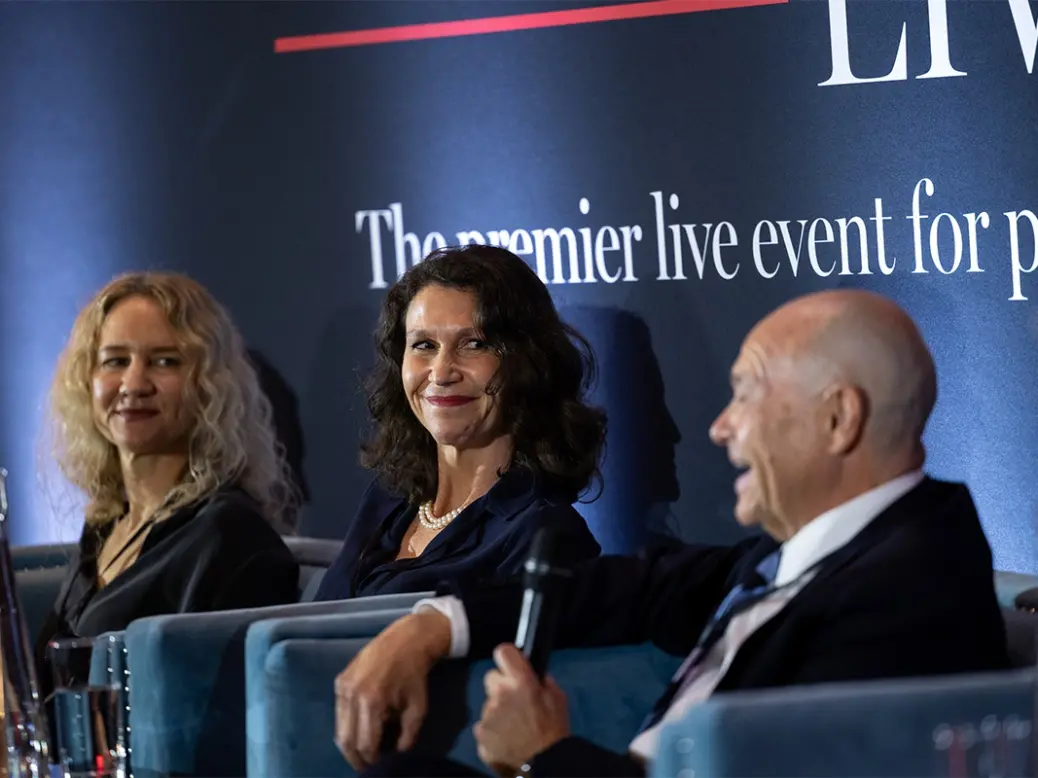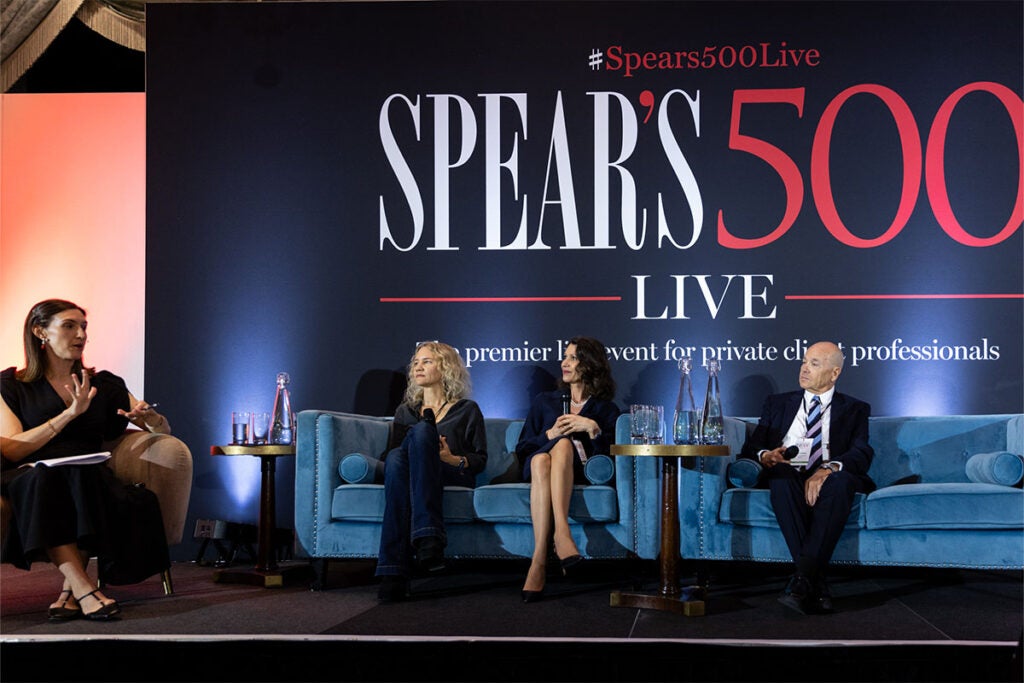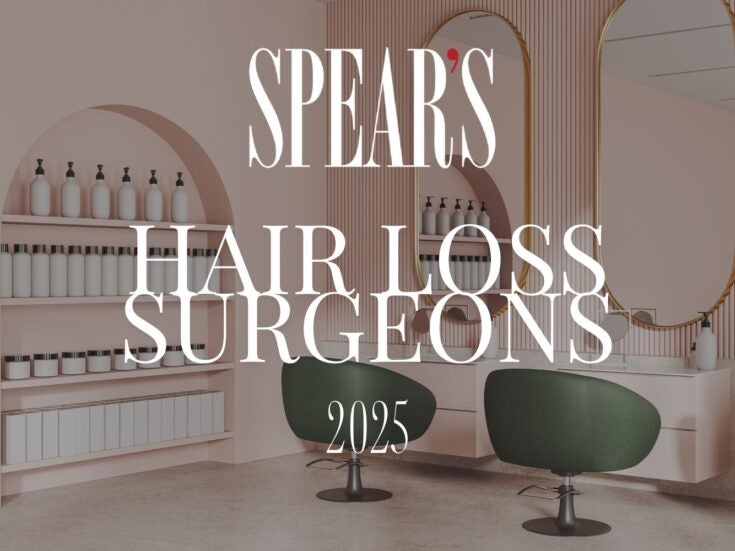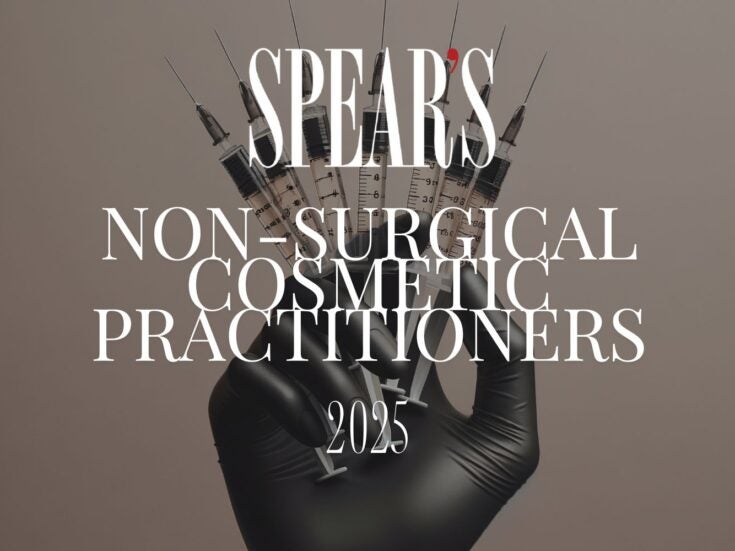
There is no ‘wonder pill’ for maximising brain health, but there are steps that can be taken to improve mental resilience, delay the ageing process and ensure the brain stays as healthy as possible for as long as possible.
This was the advice of an expert panel who convened to discuss the topic at Spear’s 500 Live, the premier one-day live event for private client professionals, which took place at The Savoy on Thursday 23 May 2024.
[See also: Institut auf dem Rosenberg: schooling the leaders of tomorrow]
In ‘Maximising brain health: strategies for longevity and peak performance in high-achievers’, presented in association with The Kusnacht Practice, panellists spanning the worlds of health and wellness and private wealth shared their insights into the demand, pitfalls and opportunities of this growing area of scientific interest.
‘We understand the structure and the functioning of the brain, and we also understand the risk factor for ageing the brain, its decline and the onset of diseases,’ explained Dr Antoinette Sarasin Gianduzzo, director of biomolecular restoration, nutrition and lifestyle at The Kusnacht Practice. ‘We also can treat, measure and prevent these risk factors.’
Anastasia Koroleva, a tech entrepreneur and host of the Exit Paradox podcast, who has built up a network of fellow post-liquidity founders through her work, noted that the desire to better understand the brain, and treat issues that might arise, is one that she has recognised among her peers.
What do UHNWs want?

She said: ‘What we [UHNWs] are aiming for is three things: firstly, we are data driven, so diagnostics is very important. Secondly, we are scared of these diseases, so we want the best of the best of the world’s specialists developing a highly personalised plan for us to avoid these diseases in the future. Thirdly, we want to optimise our brain performance for the goals that we have.’
These goals, she explained, depend on whether an ultra-high-net-worth individual is ‘pre-money’ or ‘post-money’. Those in the pre-money category are ‘all about wealth creation’. ‘So we want to optimise our brain for things like productivity, resilience, creativity,’ she continued.
However, the ‘post-money’ group who ‘genuinely feel they have enough’ will have different ambitions. ‘We have this desire to build deeply fulfilling, meaningful, impactful lives. What do we want to feel from our brains? We want contentment; we want longevity; and we want a different kind of thinking, crystallized intelligence, of asking existential questions.’
[See also: Non-doms, IHT and VAT on school fees: What’s at stake under Labour?]
Yet problems can arise when UHNWs and high-achievers don’t know where to turn for science-backed advice and screenings. Dr Paul Ettlinger, founder and medical director of the London General Practice, had advice on where to begin.
‘You have to start brain screening as early as you can,’ he urged. ‘We can’t turn back our chronological age but we can help to turn back our biological age. You’ve also got to look at how physically fit you are because physical fitness is linked to mental fitness.’
Ideally, individuals should seek out an entirely personalised programme tailored to an their specific needs, such as the one offered by The Kusnacht Practice, whose Biomolecular Restoration programme provides individuals with cutting-edge treatments tailored to rejuvenate and enhance their brain function. By targeting underlying biochemical imbalances and promoting cellular regeneration, the therapies hold immense promise for individuals seeking to preserve cognitive vitality and promote longevity.
Habits for a healthy brain

However, at the foundation of all change must be ‘habits and consistency’, explained Dr Sarasin Gianduzzo – and it all begins with the right lifestyle choices.
Dr Ettlinger highlighted the importance of exercise. ‘It is one of the very first, fundamental things that we can look at. If we exercise every day, or even three times a week, that’s going to help to protect the brain, reduce inflammation.’
[See also: Inside the £109,000 a week luxury Swiss rehab clinic]
Dr Sarasin Gianduzzo added the importance of good oral health, brain training, But her biggest piece of advice was around snacking.
‘I have one simple piece of advice: stop snacking,’ she said. ‘Don’t eat between meals. You benefit so much with not eating between meals. If you don’t eat for four hours between meals, you’ll benefit so much in terms of longevity, and on top of that, you stay in shape. When we start to snack, there are periods where your sugar goes up and down. This favours inflammation. The brain doesn’t like the ups and downs of sugar. It can also trigger moodiness.
‘There is also something happening on a cellular level. When we do not snack and have long fasting periods, it triggers some molecular processes on the cellular level to boost rejuvenation and boost the killing off of cells that don’t work anymore. You boost these effects with fasting periods, that’s where intermittent fasting comes from.’
[See also: The best luxury rehab centres for UHNWs]
Koroleva, who had seen first-hand the benefits of going alcohol-free, highlighted the importance of supplementary behaviours like meditation for brain health.
For individuals who are in search of that elusive ‘quick-fix’ solution, there will one day be a ‘wonder pill’ on the horizon. Work is already being done to investigate such drugs, explained Dr Ettlinger. However, these are some way off.
‘They’re not for tomorrow,’ said Dr Sarasin Gianduzzo. ‘These pills don’t exist yet, so for now we have to use different tools that we already have.’
Spear’s 500 Live 2024 is presented in association with our partners, Multrees, Henley & Partners, Sotheby’s International Realty, Stewardship, CAF, The Kusnacht Practice, Invest Barbados, Institut auf dem Rosenberg and Justerini & Brooks.






